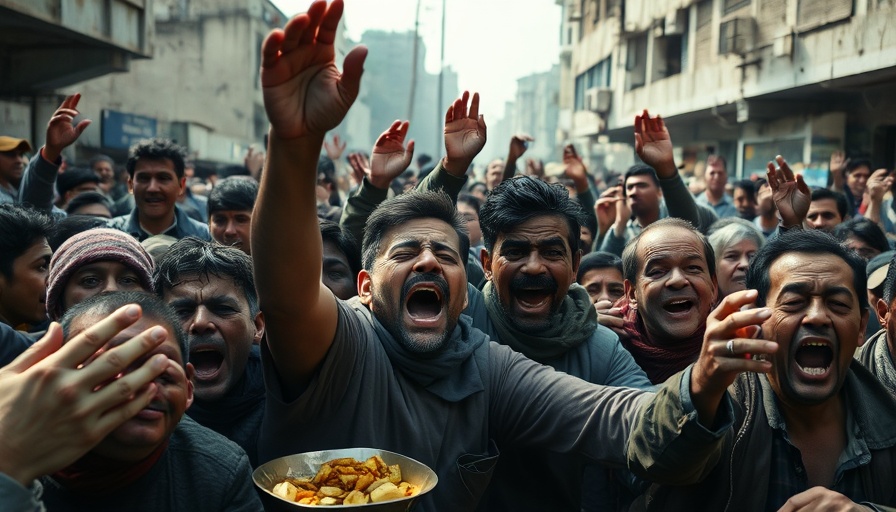
Famine Declaration: A Grim Reality in Gaza City
The Integrated Food Security Phase Classification (IPC) has officially declared famine in Gaza City, highlighting a dire situation as humanitarian restrictions continue to hinder relief efforts. This declaration marks a significant moment, as it's the first recognized famine in the Middle East. Hundreds of thousands of Palestinians are affected, facing severe food scarcity amid a relentless conflict that's dragged on since a brutal attack by Hamas in October 2023.
The Humanitarian Crisis Unfolding
According to the IPC, over 500,000 residents in Gaza—a substantial portion of the population—currently experience catastrophic hunger levels. With food production in collapse and ongoing military offensives, the conditions are perilous. Children, particularly vulnerable to malnutrition, represent a harrowing statistic within this crisis.
Responses and Denials: The Political Battlefield
Israel’s Prime Minister Benjamin Netanyahu has dismissed allegations of famine, labeling them as “lies” propagated by Hamas. Following international pressure and images of starving children, claims of increased humanitarian aid have surfaced from the Israeli government. However, local reports suggest that the aid received is woefully inadequate, leaving many in Gaza still at risk of starvation.
Looking Ahead: The Need for Change
The IPC warns that without a ceasefire and a significant lift on aid restrictions, famine will likely spread to other areas such as Deir al-Balah and Khan Younis. The future looks bleak unless decisive actions are taken to relieve the blockade and prioritize the welfare of civilians caught in the conflict.
The Importance of Awareness and Involvement
This humanitarian crisis calls for global awareness and action. Learning about the plight of those in Gaza is crucial for advocating effective changes in policy. As citizens and global residents, we must raise our voices about issues that affect livelihoods on such a grave scale.
Informing oneself about the humanitarian situation not only fosters empathy but also platform for change. With these insights, we can motivate ourselves and others to advocate for policies that ensure basic human rights and access to food, particularly in conflict zones.
 Add Row
Add Row  Add
Add 




Write A Comment